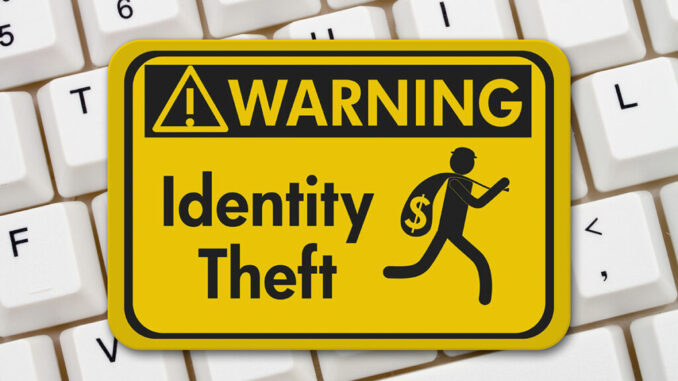As of 2017, the IRS tax-related identity theft reported 242,000 reports from taxpayers. According to the Federal Trade Commission Consumer Sentinel Network (which is responsible for tracking consumer’s reports of identity theft and fraud); in the first three quarters of 2024, there were 92,620 reports of tax-related fraud.
Even though there has been a drop in the number of tax-related identity theft over the years, scammers still find this avenue quite lucrative. This is why they have come up with new ways of defrauding people through tax-related schemes.
Falling victim to this type of identity theft can make it hard for you to receive any tax refunds the IRS owes you, or it may even make the IRS think you haven’t paid taxes when you already have.
In this article, we will discuss tax-related identity theft, the signs you should look out for, and what you should do if it happens to you. So, read on to find out more.
What is Tax Identity Theft?

Source:austinaccountingservices.com
The Federal Trade Commission reports that tax identity theft is when a scammer uses your personal information such as your social security number to file a tax return in your name. The scammer does this so that they can steal your tax refunds.
This is serious because you not only have to inform the IRS to file your legitimate return, you also have to deal with the fact that the scammer stole your identity. If the scammer has already filed a fake tax return, imagine what else they may have done with your personal information already, read more here https://2020taxresolution.com/calculate-your-liability/.
They may have taken out a loan in your name, applied for credit cards using your name, or broken into your bank accounts to steal your funds. Fortunately, you can protect yourself against tax identity theft. The first step in doing this is learning what the signs are.
What are the signs of Tax Identity Theft?

Source:mosaictax.com
This fraud is particularly damaging because you, as a legitimate taxpayer, may have no way of knowing that you are a victim of fraud. So you’re not able to protect yourself from identity theft. Often, you’ll only find out when you receive a notice from the IRS or State Tax authorities of a problem with your return.
You should be wary of possible tax identity theft if:
- The IRS mails you a letter inquiring about a suspicious tax return you didn’t file
Maybe you prefer filing your taxes the old-fashioned way: by mail. If you do this and later on you receive a letter from the IRS stating that someone used your Social Security number to file a tax return, it may point to the fact that you’re a victim.
- You can’t file your tax return online because of a duplicate Social Security number
If your Social Security number has already been used to file returns, the IRS will prevent you from e-filing your returns. This is a sure sign that someone has stolen your identity and that you’re a victim.
- The IRS mails you a tax transcript that you didn’t request
If you ever get a tax transcript in the mail that you are sure you didn’t request, be wary. A scammer may have had it sent to you by accident when they actually wanted it sent somewhere else.
- You get a notice that an online account has been created in your name
If you ever get a notification from the IRS that someone created an online account in your name and you didn’t do it, then this may point to fraud. You should take steps to make sure this account is disabled.
- The IRS notifies you that your existing online account has been logged into or disable but you took no action
If the IRS notifies you that a different device logged into your online account, changed some of your details, or that your account has been disabled; these may be the actions of a scammer.
- The IRS contacts you, letting you know you owe additional tax or refund offset
If the IRS notifies you that you owe them money, but you can’t determine why, even after carefully reviewing your income or deductions, this may mean you are a victim of tax identity fraud.
- IRS indicates that you were paid wages or other income from an employer you never worked for
If you receive a W-2 or 1099 form from an employer you don’t know, and the IRS informs you that this employer has paid you, this may indicate that you are a victim of tax identity fraud.
An Employer Identification Number is given to you, but you didn’t request for it
- You get an Employer Identification Number, but you did not request it
Suppose you get a notification from the IRS telling you that you have been given an Employer Identification Number and you didn’t request this. In that case, the scammer is responsible for doing it.
How to Protect Your Data and Identity

Source:legalzoom.com
If you’d like to protect yourself from identity theft, you need to protect your data and identity. Some of the tips for doing this include:
- Using security software for your computer and phone and making sure it updates automatically.
- Keeping an eye on your identity and personal data with identity monitoring services like IDStrong.
- Using encryption protocols to protect your sensitive data.
- Never leave your personal data lying around.
- Identify and avoid phishing emails that may be asking for your passwords or other information.
- Using strong and unique passwords.
- Where possible, make sure you use two-factor authentication.
- If you do your taxes using an online provider, using multi-factor authentication as an added layer of protection.
- Applying for an Identity Protection Pin. If you can verify your identity, you are eligible for the IP Pin, a 6-digit pin that gives additional protection for your Social Security Number on your tax return.
Steps to take if you are a victim of Tax Identity Theft

Source:experian.com
If you ever fall victim to tax identity theft, here are some of the steps you should take:
- Get in contact with the IRS immediately. You can contact the IRS at 800-908-4490, so they can secure your tax account and Social Security number.
- Fill and submit an IRS Identity Theft Affidavit. Go to the IRS website and get the IRS Form 14039 if you try filing your taxes online, and they get rejected due to a duplicate Social Security number. Fill this form out, print it, and attach it to your paper return. After doing so, mail everything to the IRS.
- Contact the FTC and file a complaint for identity theft.
- Put a fraud alert on your credit record. Get in contact with either of the three major credit reporting companies, i.e., Equifax, Experian, and TransUnion. They’ll place a fraud alert on your credit report.
- If your state has specific identity theft protocols, contact your state tax agency.
- Contact a lawyer if you have the means to do so, and seek legal advice.
Protecting yourself takes a lot of vigilance. Of all things to have stolen, your identity is one of the most invasive. Safeguard your personal information at all times and if you do fall victim, contact the IRS immediately.





